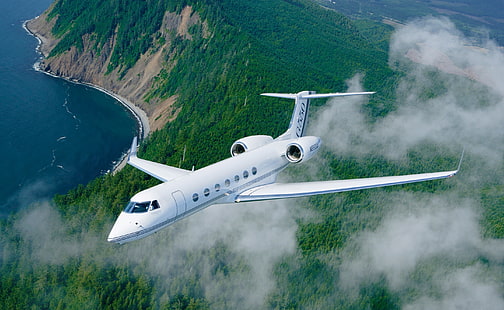isiahchaves031
About isiahchaves031
The Rise of Private Plane Flights: A new Period In Air Travel
In recent years, the aviation industry has witnessed a outstanding shift in journey preferences, with private plane flights gaining unprecedented reputation among affluent travelers. This development has been fueled by a mix of things, together with the desire for comfort, security, and luxury, as nicely as the affect of the COVID-19 pandemic on commercial air travel. As more people and businesses turn to private aviation, the implications for the industry and the environment are becoming increasingly important.
The allure of private plane travel is undeniable. For a lot of, the prospect of bypassing crowded airports, long safety strains, and cramped seating is sufficient to justify the usually hefty price tag related to chartering a private jet. Private flights provide travelers the flexibility to choose their departure times, destinations, and even onboard providers tailored to their preferences. This stage of personalization has made private aviation notably engaging to business executives, celebrities, and excessive-net-price people who value their time and consolation.
The COVID-19 pandemic has acted as a catalyst for the surge in private plane flights. As health issues prompted travelers to keep away from commercial airlines, many turned to private jets as a safer different. The notion of decreased publicity to potential well being dangers, mixed with the power to maintain social distancing, has led to a big improve in demand for private aviation providers. In keeping with business reports, private jet bookings soared by over 50% in 2021 in comparison with pre-pandemic levels, with many operators struggling to sustain with the surge in demand.

The growth of private aviation has additionally been supported by the rise of fractional ownership and jet card programs. These choices allow people to entry private flights with out the financial burden of owning a complete aircraft. Fractional possession allows a number of parties to share the prices and benefits of a private jet, while jet card applications offer a more flexible answer, allowing travelers to buy flight hours upfront. These innovative models have made private aviation more accessible to a broader range of travelers, further fueling the business’s growth.

Nevertheless, the increase in private plane flights has not come without controversy. Environmental considerations have been raised concerning the carbon footprint related to private aviation. While commercial airlines are sometimes criticized for their emissions, private jets sometimes produce considerably increased emissions per passenger. Advocacy teams have known as for higher accountability throughout the business, urging operators and travelers to contemplate more sustainable alternate options. In response, some private aviation companies are exploring eco-pleasant options, comparable to sustainable aviation fuels and electric aircraft, to mitigate their environmental impact.
The financial implications of the rise in private aviation are also noteworthy. The private jet market has become a profitable sector throughout the broader aviation business, attracting funding and creating jobs. In accordance with a report by the Nationwide Enterprise Aviation Association, private aviation contributes over $one hundred fifty billion to the U.S. economy and supports nearly 1.2 million jobs. As demand for private flights continues to develop, the business is expected to expand further, with new corporations coming into the market and present operators enhancing their providers.
Despite the challenges posed by the pandemic and environmental issues, the future of private plane flights seems brilliant. As expertise continues to advance, the business is likely to see innovations that improve effectivity, safety, and sustainability. As an illustration, the event of city air mobility options, such as electric vertical takeoff and touchdown (eVTOL) aircraft, could revolutionize the way folks journey within and between cities. These aircraft promise to reduce congestion on the bottom and provide a extra efficient technique of transportation.
Moreover, the increasing digitization of the booking course of has made private aviation extra person-friendly. Travelers can now easily examine costs, e book flights, and customise their travel expertise by way of cellular apps and online platforms. This accessibility is probably going to draw a new generation of travelers who may have beforehand thought of private aviation out of attain.
As private plane flights proceed to gain traction, the industry should navigate the challenges and alternatives that lie ahead. Balancing the need for luxurious and convenience with environmental responsibility might be essential in ensuring the lengthy-term sustainability of private aviation. Moreover, as extra people embrace the benefits of private travel, the trade will need to adapt to meet the evolving wants of its clientele.
In conclusion, the rise of private plane flights marks a major shift in the way people approach air journey. With an rising number of travelers searching for the comfort, safety, and luxury that private aviation presents, the industry is poised for continued progress. Nonetheless, as environmental concerns and economic implications come to the forefront, the way forward for private aviation will depend on its capacity to innovate and adapt to the altering landscape of air journey. Whether or not it be by way of sustainable practices, technological developments, or improved accessibility, the private aviation sector has the potential to redefine the travel expertise for generations to come back.
No listing found.